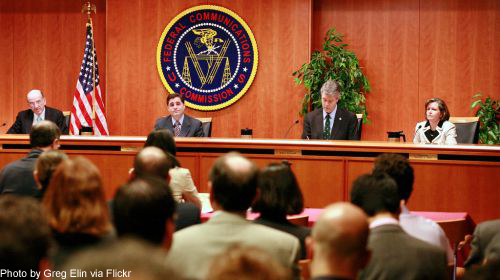
Earlier this year, the chairman of the Federal Communications Commission, Tom Wheeler, abruptly abandoned a survey of Americans’ media information needs, which, despite its modest scope, would have provided crucial data for the FCC in its efforts to maintain viewpoint diversity in our increasingly concentrated media markets.
Ironically, Wheeler did so in the face of accusations the FCC was assaulting the First Amendment and press freedoms when, in fact, the study would have helped enhance free expression. Critics argued that, as Republican FCC Commissioner Ajit Pai wrote in a Wall Street Journal op-ed, the study was “an initiative to thrust the federal government into newsrooms across the country.”
Unfortunately, despite Chairman Wheeler’s (premature) withdrawal of the initiative, the brickbats continue.
The House Committee on Oversight and Government Reform now plans to take time, tax dollars, and focus away from the real problems facing our country and government by launching a formal inquiry into the Wheeler study.
Chairman Darrell Issa’s (R-CA) letter to the chairman announcing the inquiry previews the tenor of this “investigation.” The Wheeler study, Rep. Issa said, is emblematic of an “ongoing assault on the Constitution by the Obama Administration.” The study “was not an innocent inquiry” and is “disconcerting in light of the current Administration’s continuing efforts to silence the constitutionally protected speech of its opposition.”
Such language suggests that perhaps the Chairman’s views have been colored by his view of other administration actions and may not be entering into the “investigation” with a completely open mind.
It’s crucial to understand what we’re talking about here. The survey, known as the Critical Information Needs study (“CIN”), would have assisted the FCC in identifying barriers to entry in the communications marketplace, especially for minority and female owners, which the FCC is obliged by law to do.
It also would have included a section surveying minority and female media consumers to evaluate whether their information needs are being met, including things like access to emergency information in a hurricane.
Some, however, pounced on the study as a direct assault on the First Amendment. In addition to Commissioner Pai’s op-ed in the Wall Street Journal, some Congressional Republicans called the study the first step on the road to a “news police.” Rep. Greg Walden (R-OR), chairman of the powerful House Energy and Commerce Committee, vowed to block the CIN study.
Were there a legitimate First Amendment concern with the CIN study, the ACLU would be the first to object (it’s not like we love FCC content regulation). We caution the Congressional committee charged with eliminating government waste, however, not to waste scarce taxpayer resources on an “investigation” into a harmless, and actually helpful, government fact-finding exercise.



